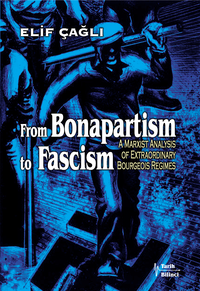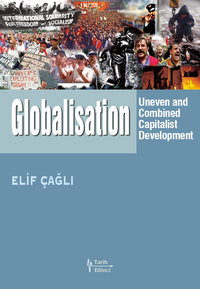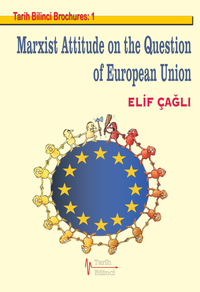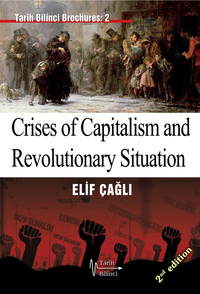Prime Minister Erdoğan admitted in a speech that the Turkish state has made a massacre in Dersim in 1937-8. Showing some official documents from state archives Erdoğan said that there were 13.806 persons killed, more than ten thousand deported and thousands of little girls forcibly taken and raised by army officers. He claimed that as government they were coming to terms with the past and shedding light into dark corners of history, adding that “if there is need for an apology on behalf of the state, if there is such a practice in the books, then I would apologise and I am apologising.”
This statement and the apology immediately became the main issue of the political agenda and caused a widespread public debate. Nationalists of different kinds condemned the apology and they claimed that Dersim event was a rebellion against state with foreign links and deserved a heavy handed crackdown. And that Erdoğan’s got a secret agenda which is to call Mustafa Kemal into question as AKP’s political lineage has got a score to settle with the “modern Turkish Republic” and the “Turkish revolution” led by Mustafa Kemal.
Dersim massacre
Dersim massacre was the last link in a series of suppressions of Kurdish people and movements between 1920 and 1938. It is known that there were 28 Kurdish rebellions against Turkish rulers, the main ones being the Koçgiri rebellion in 1920-1, the Sheikh Said rebellion in 1925, Mt. Ararat rebellion in 1926-30 and Dersim rebellion in 1937-8.
The fundamental reason for these rebellions was the national aspirations of the Kurdish people, which has been under oppression for centuries. But the immediate reason was the betrayal of Kemalist leadership in the course of creating a new state in Anatolia in the wake of the Ottoman Empire in 1920s. To get support from Kurds in the struggle against Armenians, Greeks and imperialist powers, the Kemalist leadership initially promised autonomy to Kurds. But then they betrayed. Upon this betrayal or signs of it Kurds rebelled in many provinces around Anatolian Kurdistan. And Kemalist forces and the state machine launched a violent campaign of repression. This campaign is accompanied by an oppressive campaign of Turkification of all minorities including Kurds. These Turkification policies, in fact, are still existent. Even daily household use of Kurdish language was suppressed.
Part of this policy was to change even the original names of places. By a special law in 1935 the name Dersim was changed to Tunceli by the state, which is still the official name. Local people never accepted this and kept using the genuine name Dersim in their daily life. Tunceli is a word composed of the words “Tunç” and “El” meaning “bronze” and “hand” respectively. It is well known that this meant “state’s bronze hand”. By giving this name they meant to give the message to Dersim people that the state is hard as bronze and Dersim people will see it.
After suppressing all rebellions the most resistant region remained, which was Dersim. The state apparatus had been preparing itself for a long time for a heavy crackdown and suppression in Dersim. Dersim was both Kurd and Alevi which made it the most resistant area within whole Kurdish territory. The operation started in 1937 and the state forces did unprecedented atrocities during and after the operation. More than 40 thousand people were massacred not sparing even children, females and the elderly. People were put in barns and caves and burned alive. In some cases to kill those who escaped and took refuge in caves in mountains they used poisoning gas bombs thrown from aircrafts. Forests were surrounded and burned to exterminate those who had taken refuge there. Many Kurdish females committed collective suicide and threw themselves into rivers.
Dersim represented the climax of the policy of denial, extermination and forceful assimilation since 1920s. Since 1930s use of Kurdish was banned until recently. Even the words Kurd and Kurdistan were removed from dictionaries and encyclopedias. There was almost incessant martial law in Kurdistan from 1920s to 2003.
Erdoğan’s apology
Erdoğan’s apology is not a genuine and sincere one. He is implementing very hostile policies against Kurds and Alevis in Turkey. It is a bad irony that even nowadays Dersim mountains are bombed by fighter aircrafts. There is a heavy crackdown ongoing over Kurds under the name of KCK operations. Thousands of Kurdish politicians and cadres are under arrest. Every day we hear new police raids on Kurdish organisations.
And, what about the policies about Alevis in Turkey? The fact is that even the simplest demands of Alevis have not been met by Erdoğan’s AKP. Their fundamental religious rights are denied. Alevi children are forced to learn Sunni religious doctrine in schools because religious classes are compulsory for everyone, which is in obvious contradiction to the constitutional principle of secularism. These religious classes are strongly based on Sunni Islam teachings. Even their sanctuaries which they call “cemevi” are not recognized officially.
And there are demands by Dersim people about Dersim supported by Kurds, genuine democrats and revolutionary socialists. For instance they demand a thorough investigation of Dersim massacre. But AKP have no intention of further investigating and disclosing the facts about Dersim massacre. For instance, just after the showy apology they rejected a move by the Kurdish party BDP to set up a parliamentary commission to search into Dersim massacre.
They also showed no signs of opening the secret state archives and disclosing all documents about Dersim crackdown, reinstating the name Dersim, disclosing the places where the leaders of Dersim rebellion buried, issuing an official state apology in recognition of the massacre, etc. All these demands are not met and even not touched.
Hence this apology is nothing but a hypocritical political manoeuvre by Erdoğan. Seizing on an opportunity on the occasion of a statement by one of the Dersim MPs of Republican People’s Party (CHP), Hüseyin Aygün, who is an Alevi from Dersim, Erdoğan is using the issue to deepen the cracks in CHP and especially weaken its new leader Kemal Kılıçdaroğlu. CHP is the party of state-building Kemalist bourgeoisie and until 1946 there was a regime of single-party dictatorship in Turkey led by CHP. CHP apparatus and state apparatus were intertwined and CHP was in fact the state itself. So, it was directly responsible for all such massacres of the state. As CHP is the main opposition party now, Erdoğan uses this issue as a tool to squeeze it into corner and undermine its mass support, especially on the front of Alevis. Because despite many atrocities perpetrated by the Kemalist CHP against Alevis and Dersim, they keep supporting CHP against AKP and other political parties.
There are many Alevis in CHP including the chairman Kemal Kılıçdaroğlu. He is the first Alevi to chair the party though. But the fact is that Alevis are supposed to hide their identities and they never make public appearances with their identities. Because there are grave prejudices based on ignorance against Alevis in Turkey. And there are also balances within CHP.
Against this background, Aygün, the Dersim MP from CHP, said CHP had to face the Dersim massacre and that it was impossible to say Mustafa Kemal Atatürk was unaware of what was going on in Dersim. To name Atatürk was a taboo-breaking act and created uproar within CHP putting also Kılıçdaroğlu in a delicate position as he is an Alevi coming from Dersim. Actually he always prefers to avoid the issue and not to talk about his Alevi identity and Dersim roots. At one stage, while the inner party fight was alive in CHP, Erdoğan decided to take up the issue and stepped in.
By this timely move he aimed to hit many birds with one stone. First is to undermine CHP and its Alevi support. Also he wants to squeeze Kılıçdaroğlu into corner by forcing him to come against Kemalist premises and cadres of the party. Second is to divert attention from the heavy crackdown on Kurdish movement and its supporters, even some respected intellectuals. This increasingly causes concerns on the part of liberals who were supporting the AKP so far and began raising their dissenting voices. So, by a seemingly democratic move which is supposed to create a debate serving to call into question the Kemalist past of the country, which has always been the most favourite issue for liberals, Erdoğan wanted to clear his increasingly authoritarian image and appease these concerns of liberals and international observers. This point is also important for his image in the Middle East and North Africa. We must also remember that he is pursuing a warmongering policy against Syria nowadays. AKP’s attitude toward Syria underwent a sharp turn from extreme friendship to bitter hostility, which puts AKP in a somewhat difficult position to convince society at large. Thus the Dersim issue came out as a good opportunity to divert attention from Turkey’s shameless military preparations against Syria.
Once again it is shown that bourgeois politicians can never be sincere friends of oppressed peoples. All they can do is to exploit their sufferings and manipulate them for their immediate political interests. Only the sincere revolutionary internationalist hand of the working class can be a genuine friend to oppressed peoples. Therefore as international communists it is our revolutionary duty to raise consciousness within the working class to help oppressed peoples to achieve their fundamental democratic rights and pave the way to clear all prejudices that may reside among workers against one another. This is the only revolutionary way to get workers from all nationalities united.
link: entkom_admin, Behind Erdoğan’s Dersim Apology, 3 December 2011, https://enternasyonalizm.org/node/483
Historical Experience: The Fate of Isolated Revolution
Turkish State Killed 36 Kurdish Civilians in an Air Strike






